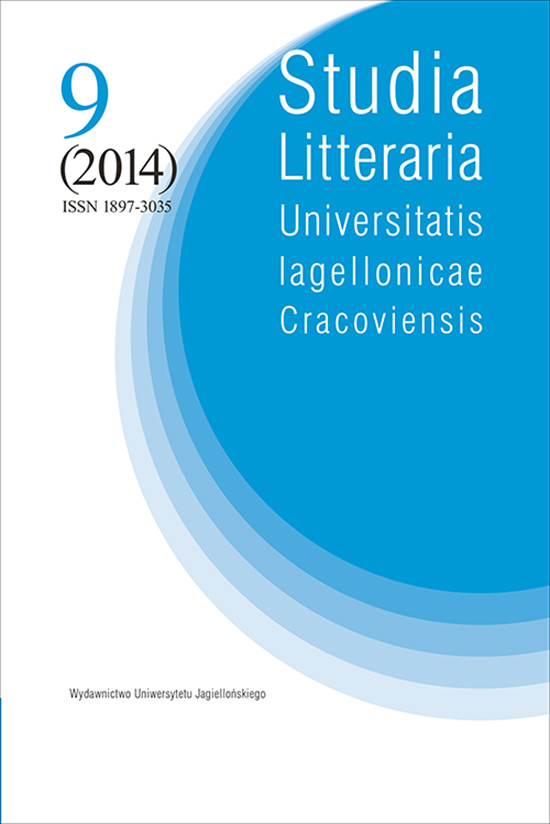Эго и Эхо в поэтике И. Северянина. К истории поэтики русского футуризма
Ego and Echo in the Poetics of Igor Severyanin. Commentaries to the History of Russian Futurism
Author(s): Zoltán JózsaSubject(s): Language and Literature Studies, Studies of Literature
Published by: Wydawnictwo Uniwersytetu Jagiellońskiego
Keywords: Narcissus and Echo motif; poetics of Igor Severyanin; Russian Poetry; Russian Futurism
Summary/Abstract: The study aims to survey the Narcissus and Echo motif in texts of Severyanin whose heritage remained disregarded for a long time in the history of Russian poetry. Russian Futurism, stressing collectiveness through an utter primacy of ‘we’, saw an era of distinct individualism at its start, presented by Ego-Futurism. Although Futurist poetry, like Acmeism, declared itself as opposed to the teaching of the Word represented by Russian Symbolism, negating all values of the whole past of human culture, Ego-Futurism shows close connections with Mysticism typical of the Symbolist vision of poetry. Severyanin’s ideals rooted in the Symbolist aesthetics reflect a preoccupation with Mysticism and the Hermeneutics of the Myth. In a Solovyovian stance the manifesto of Ego-Futurism explicates the idea of acquisition of the Universal Soul. The theme of Egoism in the poem The Birch Chalet, reflects a conscious approach to the Ancient Greek myth of Narcissus and Echo with regard to its poetic and philosophical implications. The floral imagery abundant in Severyanin’s texts here is converted into a symbol of transmutation, the nymph inspiring and preserving the poetic word, with the poet placed in the position of Narcissus. To intensify the significance of the motif, Severyanin exploits the echo rhyme, following Symbolist contemporaries. Futurism, focusing on the reinterpretation of an image of the world envisaged as a mirror, resembles its antecedents in Baroque literature. The semantics of voice versus text introduced to decode the process of creation and reception of a piece of literature is present in texts alluding to the motif. The same tendency manifests itself in the practice of the ‘poezoconcerts’, i. e. readings in public by Severyanin touring Russia. The scheme and practical realisation of these public readings, including the introductory words on the Futurist theory of poetry, followed by recitations and finally completed by the appearance of Severyanin chanting his poems in a special fashion are also discussed.
Journal: Studia Litteraria Universitatis Iagellonicae Cracoviensis
- Issue Year: 9/2014
- Issue No: 2
- Page Range: 85-104
- Page Count: 20
- Language: Russian

